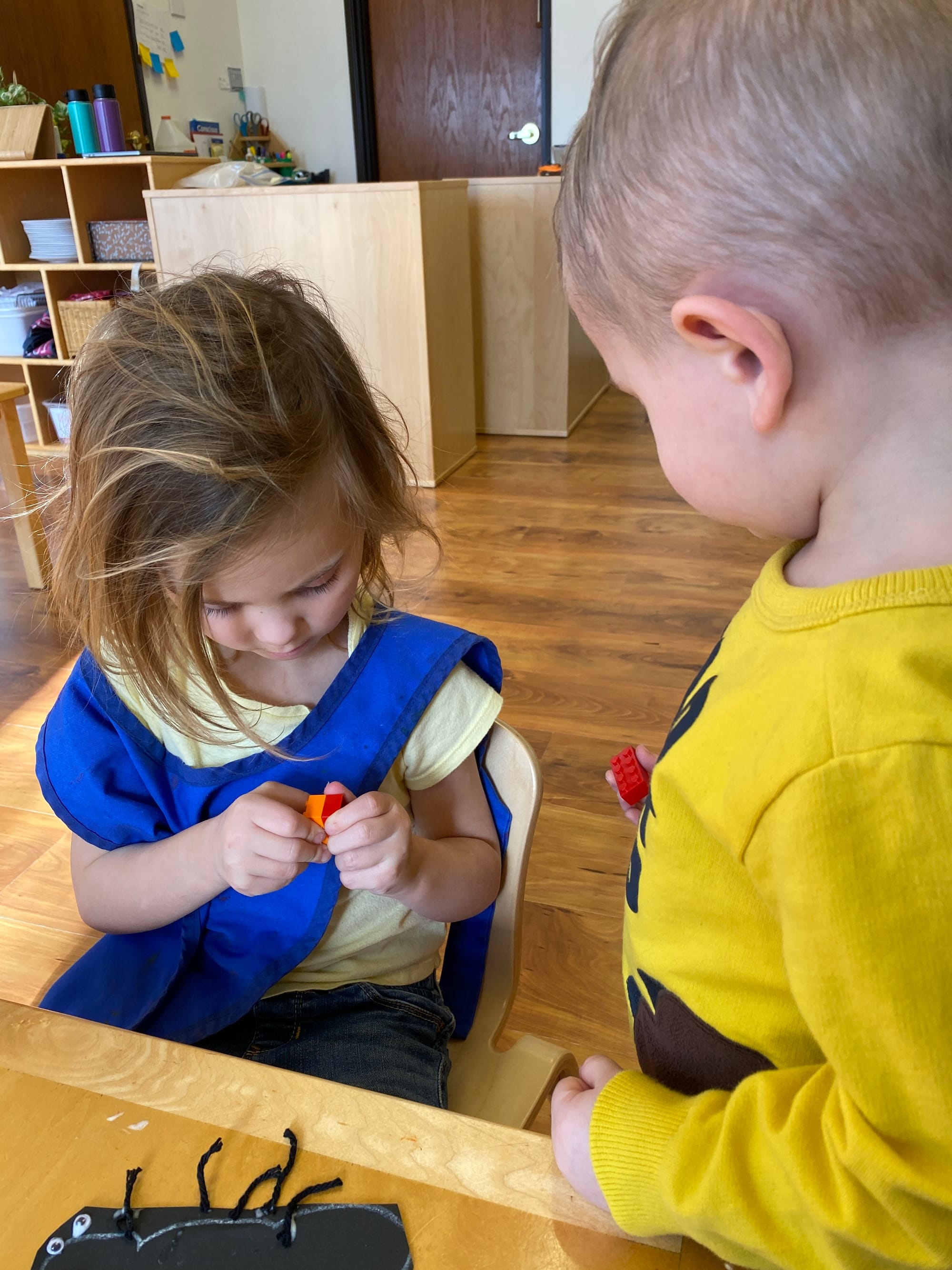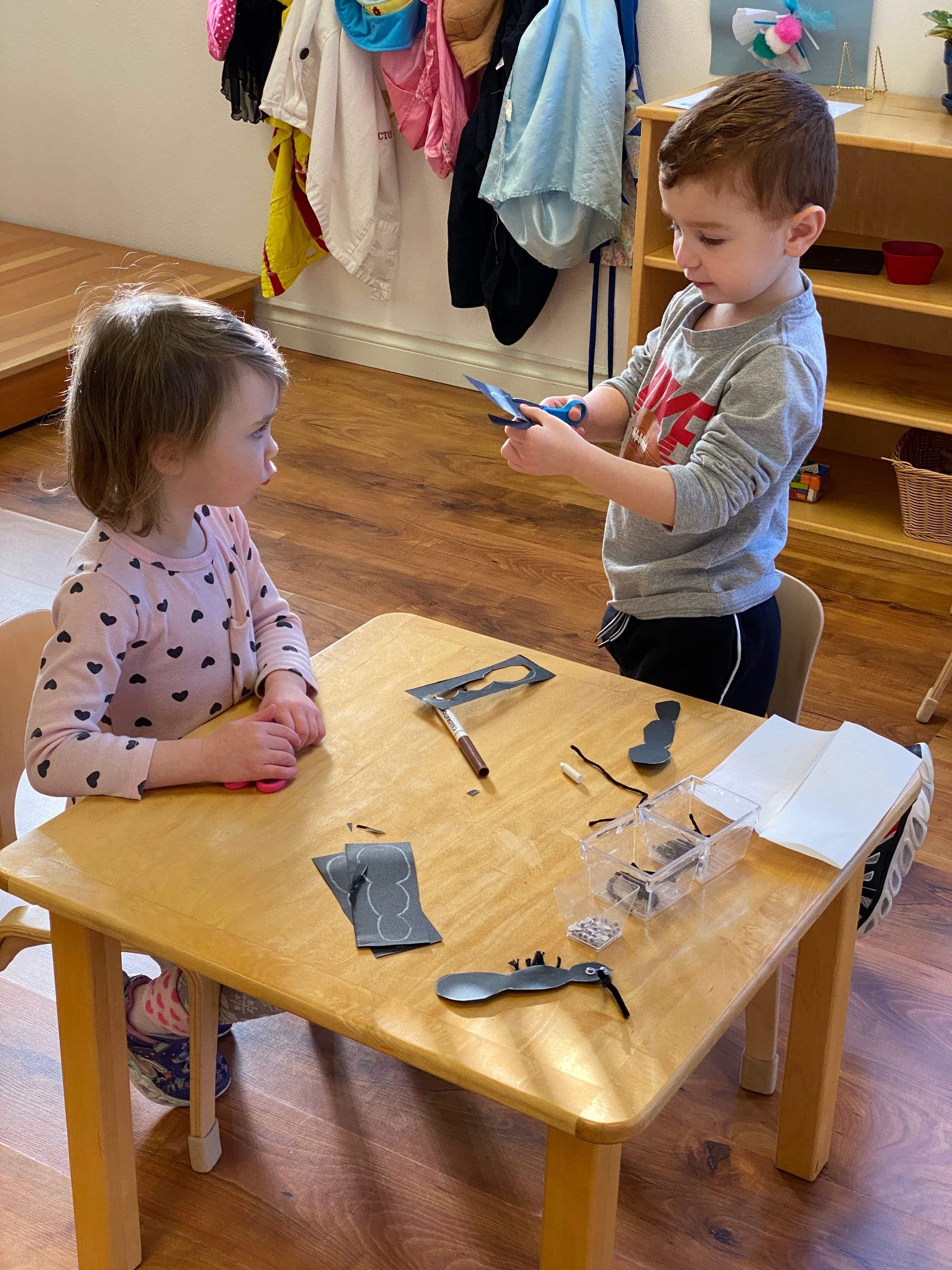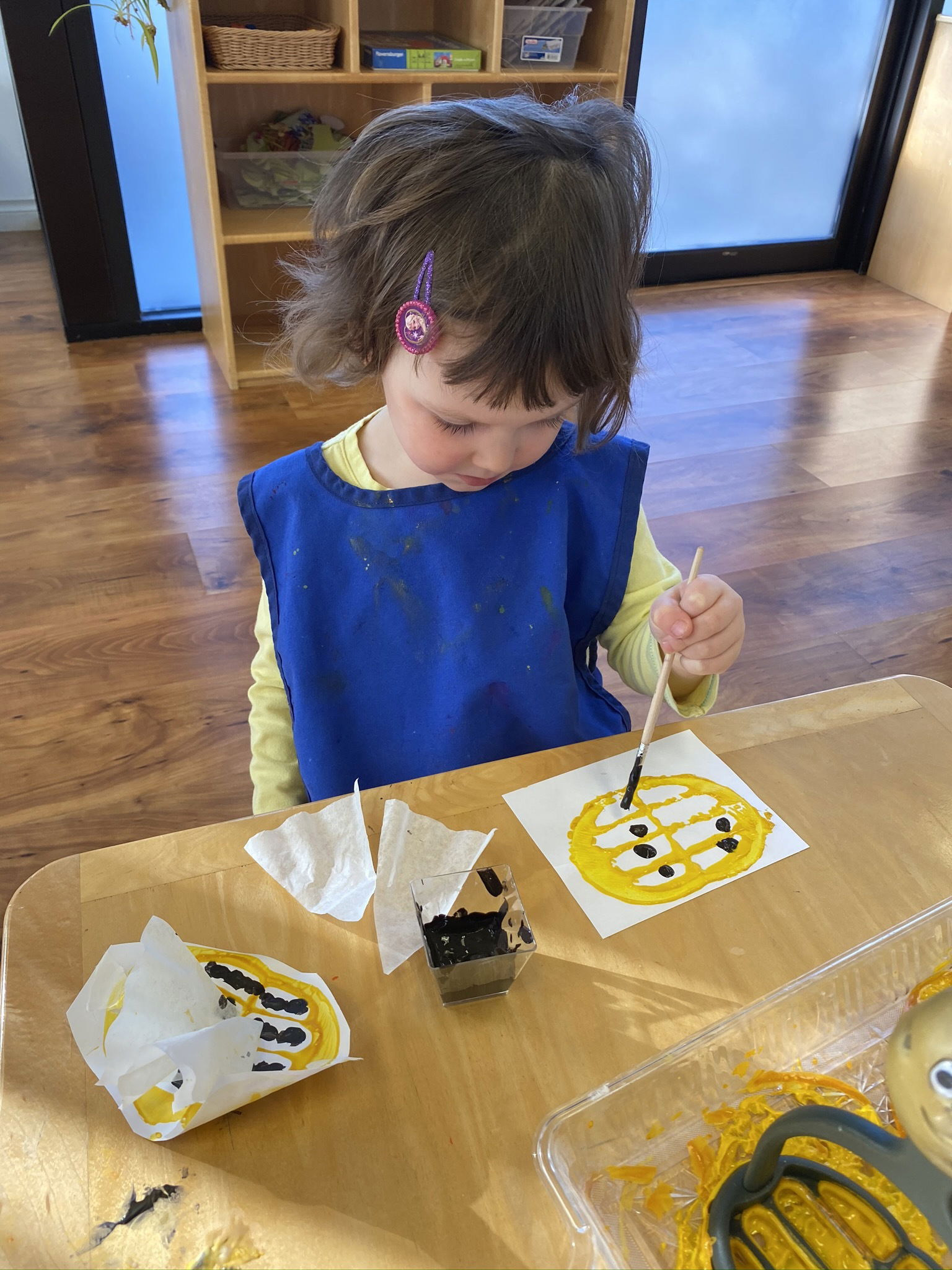We are a community that works together
This week at The Gan Garrett Jewish Preschool, we continued to be entomologists.
We took a closer look at ants and bees. Both are social insects that work together for the benefits of their communities.
 "It's just one tiny ant. It hasn't decided where to go yet."
"It's just one tiny ant. It hasn't decided where to go yet."
Ants live in large colonies where each ant contributes.
We discovered that ant colonies are called families. They all work to put their family first to help it thrive.
Evie: They dig big holes.
Lael: They look like caves.
Morah Katie: Why do so many ants work on digging the tunnels and the nest?
Moshe: They are making it good for the baby ants.
Morah Katie: What else do we know about ants?
Eli: They have antennas.
Zoey: They eat.
Morah Katie: They eat. Do we eat?
Kids: Yes.
Morah Katie: We have that in common. Interesting. What else do we know about ants?
Zoey: If an ant gets hurts they get their boo boos fixed.
Morah Katie: They do! Families of ants take care of each other. They are a family. When one is injured they have nurse ants who help care for it. Do we take care of people who get hurt? Do we take care of each other?
Kids: Yes!
Moshe: They carry things in their jaws.
Morah Katie: Do we carry things in our jaws?
Gwen: We carry toys with our hands!
Morah Katie: We carry things with our hands.
Brexton: Ants carry logs.
Moshe: IF lots of ants are together, they can carry anything. Probably a building. They are so strong.
Morah Katie: Ants work together. Working together makes everything better. It allows their family to thrive.

We refer to our classroom as a school family. We all have something to contribute to our preschool family so it thrives.
Morah Katie: Let's try something. Hugo, please to move tables together for snack. By yourself.

Looking at his face, it doesn't appear easy.
Hugo: IT's hard. Heavy.
Morah Katie: Hugo Let's have two friends help you. How about now?
Hugo. Better.

Morah Katie: Normally I ask for the helper of the day to invite two friends to help set up the snack tables. Why do you think I do that?
Moshe: Together is easier.
Evan: It is really hard to do it all by yourself.
We wanted to see if doing things together, the way ants work, was true everyday.
On Wednesday Kenya was the helper. She was asked to set the snack tables up by herself.


It was hard. She invited two friends to help her. Zoey and Evie helped carry the tables.
Morah Katie: What made it easier for Kenya to move the tables for snack?
Eli: Working together is helpful.
We made ants. As we practiced developing some fundamental preschool skills such as cutting and counting, we talked about how we add value to our preschool family.




Morah Katie: What are some things you can do, that are helpful to your friends and our preschool family?
Moshe: I am learning to read. It adds value to my school family because I can help read to others and help them read.
Zoey: I can hug my friends when they are sad. It adds value to my school family because it helps them feel happy.
Hugo: I can play Legos. I play with friends.






Lael: I can paint and paint with friends. That would make them happy.
Brexton: When they are sad I wish them well. That makes them feel better.
Shoshi: I can run. My friends can run with me.
Evan: I can draw. It adds value to my school family because I can help my friends draw.
Eli: I can cut. It adds value to my school family because I can help my friends learn to cut or help cut their crafts.
Honey bees are social insects who work together so all can thrive.






Morah Katie: What do we know about honey bees?
Moshe: They pollinate flowers.
Evan: They live in hives. The big bees go get the pollen.
Moshe: They take pollen and nectar and make honey.
Morah Katie: What do bees do during the winter?
Evan: They stay in their hive together. They huddle.
Morah Katie: How do they huddle?
Moshe: They get together and they cuddle together. They eat the honey together.

Zoey: And then spring comes and it's warm.
Evan: The sun comes and plants grow.
Moshe: The bees start to pollinate again.

Morah Katie: In both the ant families, and the bee hives, I see something that happens in our school family. Do you see a similarity?
Moshe: We help each other.
Evan: The big kids help the little kids learn.



Please visit our former blog to view past preschool experiences.


